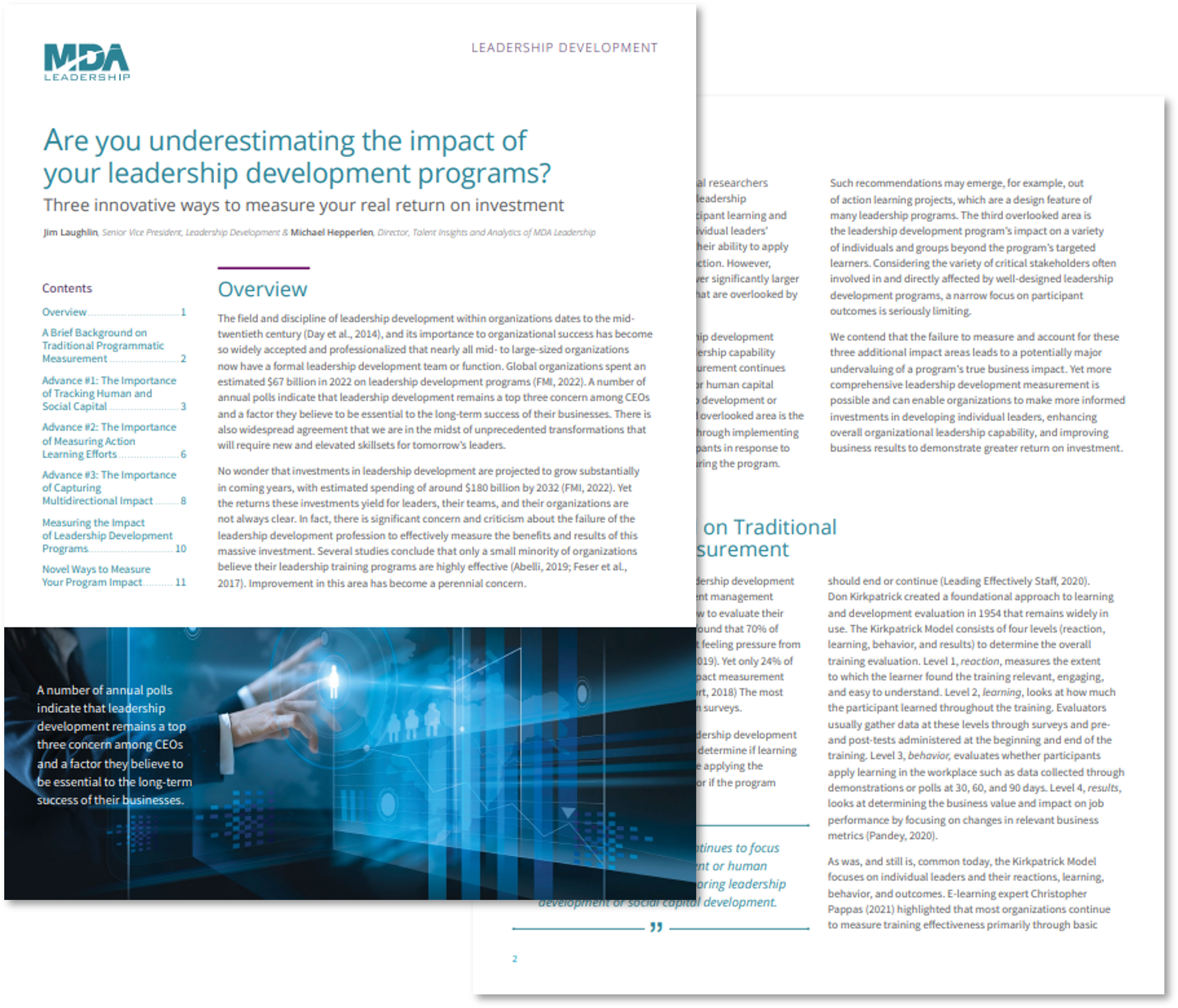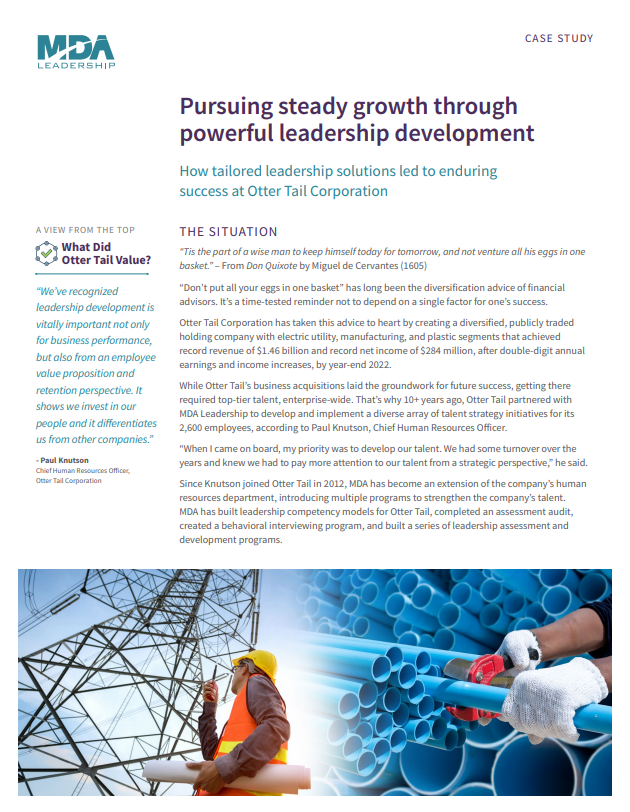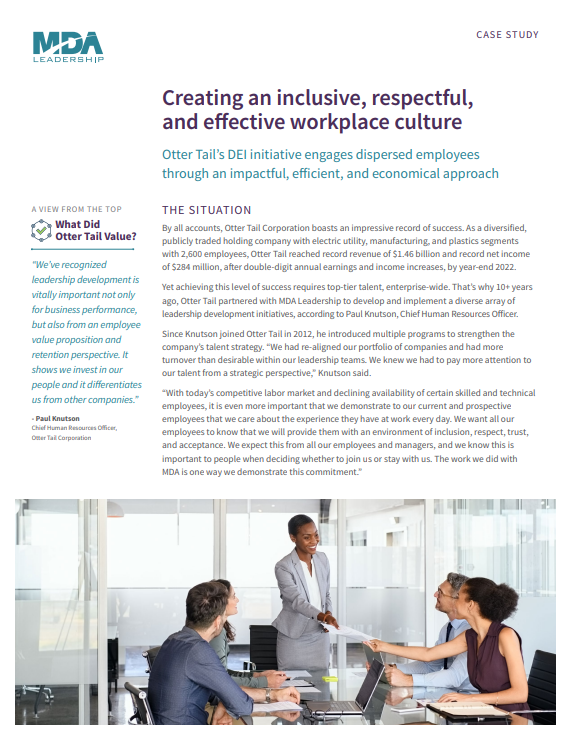Metrics that Matter

Download this white paper to learn three innovative ways to measure your real return on LD investments
Metrics that Matter: Your Guide to Measuring Leadership Development Program Impact
Global organizations spent an estimated $67 billion in 2022 on leadership development programs. A number of annual polls indicate that leadership development remains a top three concern among CEOs and a factor they believe to be essential to the long-term success of their businesses. There is also widespread agreement that we are in the midst of unprecedented transformations that will require new and elevated skillsets for tomorrow’s leaders. No wonder that investments in leadership development are projected to grow substantially in coming years, with estimated spending of around $180 billion by 2032 (FMI, 2022).
Yet the returns these investments yield for leaders, their teams, and their organizations are not always clear. In fact, there is significant concern and criticism about the failure of the leadership development profession to effectively measure the benefits and results of this massive investment. Several studies conclude that only a small minority of organizations believe their leadership training programs are highly effective (Abelli, 2019; Feser et al., 2017). Improvement in this area has become a perennial concern.
Most organizations and organizational researchers continue to assess the effectiveness of leadership development programs based on participant learning and outcomes. Results tend to focus on individual leaders’ retention of knowledge and skills and their ability to apply that acquired knowledge and skills in action. However, quality programmatic designs can deliver significantly larger positive impacts in three major areas that are overlooked by traditional measurement methods.
We contend that the failure to measure and account for these three additional impact areas leads to a potentially major undervaluing of a program’s true business impact. Yet more comprehensive leadership development measurement is possible and can enable organizations to make more informed investments in developing individual leaders, enhancing overall organizational leadership capability, and improving business results to demonstrate greater return on investment.
In this new white paper, MDA Leadership showcases three leading-edge ways we design, develop, deliver and measure cohort-based leadership development programs to demonstrate significant business impact. It highlights why our work has been recognized with two competitive global awards for leadership development excellence in recent years. If you aspire to similar results, contact us to learn more about how we can partner to achieve the individual, team, and organizational results your business needs.
Visit our solutions page to learn more about MDA’s award-winning, transformative leadership development experiences.
Suggested Content

Need more resources?
C-suite Selection and Succession: Delivering Leadership Excellence for the Future
MDA Leadership helps CEOs articulate executive leadership needs, identify top talent, and accelerate C-suite transitions.
Senior Executive Blueprinting ™
C-suite Selection and Succession
C-Suite Transitions
Board Services: Enhancing Board Effectiveness
MDA Leadership helps boards strengthen their governance roles and internal dynamics.
Board Evaluations
Board and CEO Consultation
CEO Coaching and Trusted Advisor Consultation

Let’s begin a conversation.
At MDA Leadership, we know there are no one-size-fits-all solutions for every organization. We take the time to get to know your business and your leadership needs and recommend a range of options that are the best fit for your growth goals. Let's see how MDA Leadership can optimize your Talent Strategy for the Long Run®.



